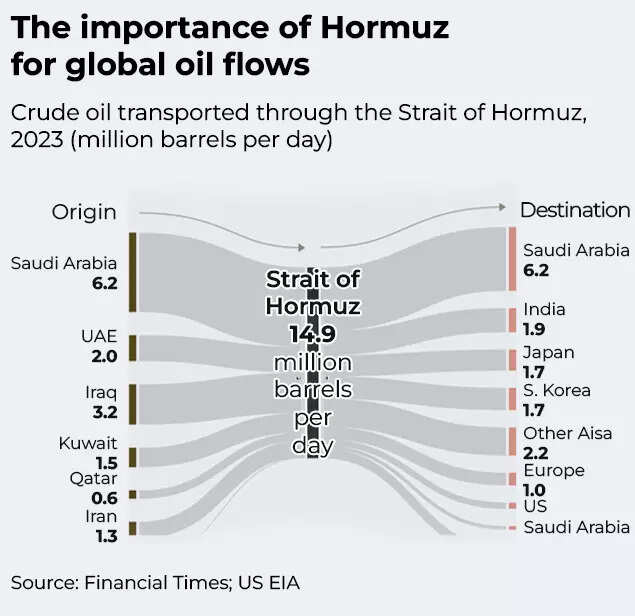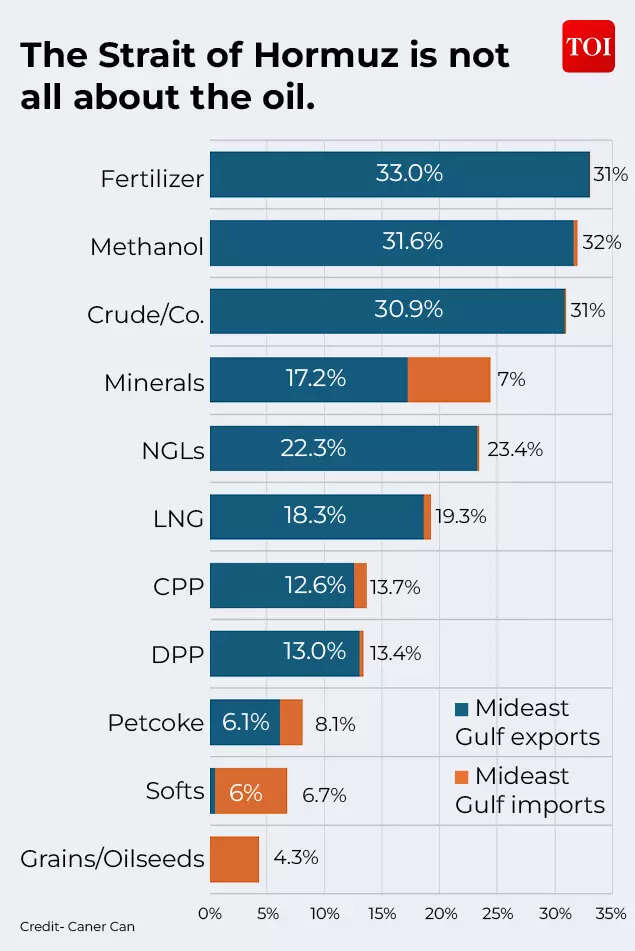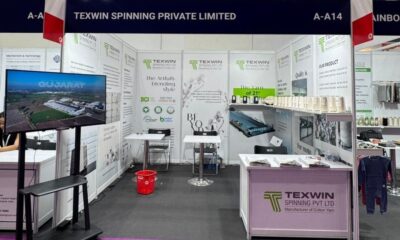Business
JD Sports shareholders hoping for progress amid US consumer weakness

JD Sports investors will be hopeful the retailer can show signs of progress next week after sales came under pressure at the start of the year.
The impact of US tariffs and its overall performance in the US will be particularly in focus when it provides a half-year trading update on Wednesday August 27.
Shares in the business have ticked slightly higher over the past six months but are still firmly down over the past year after a profit warning in January and broad caution over consumer demand.
In its previous update in May, the London-listed sportswear specialist revealed that like-for-like sales dipped by 2% over the quarter to May 1.
However, organic sales grew by 3.1% in the quarter as new store openings helped to offset soft demand from shoppers.
In the UK and Europe, sales were slightly stronger after positive weather conditions at the start of the year.
Jonathan Pritchard, analyst at Peel Hunt, said the business will face “tougher” comparatives in the second quarter and highlighted that “wider global trends have not been helpful”.
He added that he believes the company is “in a very good place” strategically and could benefit from new product releases from Nike, as the key supplier partner seeks to rebound following recent weakness.
Other analysts, however, indicated that recent troubles at Nike and weak consumer sentiment in the US will present a continued challenge for JD Sports.
Danni Hewson, head of financial analysis at AJ Bell, said: “Ongoing worries over momentum (or lack of it) at Nike, which faces greater competition from the likes of On and Hoka, continue to weigh, even if Nike is by no means JD Sports’ only brand partner.
“Worries about wider trends in consumer spending and the impact of the Trump tariffs also remain an issue.”
Sales in the US were firmly lower in the first quarter, so investors will be hoping that the company can point to an improving trajectory despite pressure from tariffs.
Bosses at JD previously warned that the cost of goods and services in the US was likely to rise because of tariffs, which could result in price increases which may then weigh further on demand.
Shareholders will also be hoping for any indication as to the retailer’s profit outlook, although JD is likely to hold this back until a more thorough update next month.
The group is currently predicted to reveal profits of around £890 million for the current financial year, down slightly on the previous year.
Business
Middle East heat may ripple across India’s energy supply chain, flags Goldman Sachs – The Times of India

As tensions continue to heat up in the Middle East, concerns are raising about disruptions to one of the world’s most critical energy shipping routes, the Strait of Hormuz. Any disruption could significantly affect major oil-importing countries such as India, as the narrow Strait of Hormuz is central to global energy trade. The strait sees almost 20 million barrels of oil passing through each day, or about a fifth of the world’s consumption, pass through the route. The waterway also carries roughly 19% of global liquefied natural gas (LNG) shipments, making it a crucial corridor for energy-importing economies.A recent report by Goldman Sachs has flagged early signs of stress in the region. The report warned that tanker traffic through the Strait of Hormuz has already begun showing signs of disruption, with shipping firms, oil producers and insurers adopting a cautious approach following reports of damaged vessels in nearby waters.According to the firm, financial markets have already begun factoring in the geopolitical risk. Oil prices currently carry an estimated risk premium of $18-per-barrel, reflecting the potential market impact if energy flows through the Strait of Hormuz were disrupted for about a month.

Even is the oil facilities are not directly damaged, a shutdown of the shipping route could expose a significant portion of global supply. The report estimates that in an event of full closure, about 16 million barrels per day of oil flows could be affected, despite the availability of some pipeline routes designed to bypass the strait.And the risks are not limited to crude oil shipments with almost 80 million tonnes of LNG exports annually, much of it from Qatar, moving through the passage. Any prolonged disruption could tighten gas supply globally and potentially drive European benchmark gas prices back to levels seen during the 2022 energy crisis.

Asian economies stand among the most exposed to such disruptions. Major importers such as China, India, Japan and South Korea depend heavily on oil and LNG shipments that transit through the strategic corridor.While global oil inventories and spare production capacity could help cushion short-term shocks, the report warned that sustained disruption to Gulf shipping routes could trigger sharp volatility in global energy markets and push prices higher across oil, gas and refined fuel products.Market participants and governments are closely watching tanker traffic in the Strait of Hormuz, along with diplomatic and military developments involving the United States, Iran and Gulf nations, to assess whether the current disruptions remain temporary or escalate into a broader energy supply shock.
Business
Saudi Oil Supply Assurance Lifts Pakistan Stock Market – SUCH TV

KARACHI: The Pakistan Stock Exchange rallied on Thursday after Saudi Arabia assured Pakistan of facilitating crude oil shipments through the Red Sea port of Yanbu Port, easing concerns over potential fuel supply disruptions.
The benchmark KSE-100 Index climbed sharply during the trading session, rising 4,439.93 points (2.85%) to reach an intraday high of 160,217.14 points.
Market Recovery
Analysts attributed the market rebound to renewed institutional buying and improving investor sentiment after Saudi assurances on oil supplies.
Market expert Ahsan Mehanti, CEO of Arif Habib Commodities, said easing fuel supply concerns played a key role in the recovery.
He added that rising global crude prices, expectations of a new International Monetary Fund loan tranche for Pakistan, and positive economic indicators also boosted investor confidence.
Alternative Oil Route
Pakistan sought an alternative supply route after Iran announced the closure of the Strait of Hormuz, a crucial global oil transit corridor.
Federal Petroleum Minister Ali Pervaiz Malik held talks with Nawaf bin Said Al-Malki, requesting Saudi support for uninterrupted energy supplies.
Saudi authorities reportedly assured Pakistan that oil shipments could be routed through Yanbu, and one crude vessel has already been prepared for dispatch.
Global Oil Market Impact
Oil prices continued to rise amid tensions in the Middle East conflict involving Iran, Israel and the United States.
Brent crude: up 3.26% to $83.99 per barrel
West Texas Intermediate (WTI): up 3.70% to $77.42 per barrel
Energy markets remain volatile as shipping disruptions threaten supply through the Strait of Hormuz, a route that handles nearly 20% of global oil trade.
Analysts say the Saudi assurance helped calm fears about Pakistan’s energy supply chain, contributing to the strong recovery at the PSX.
Business
Asian stocks today: Markets inch higher mirroring Wall Street gains; Kospi jumps 10%, Nikkei up 1,400 points – The Times of India

Asian stocks inched higher on Thursday, after days of trading in red amid ongoing Middle East tensions. This comes as equities were lifted by a rebound on Wall Street as oil prices paused their recent spike and economic updates painted a more positive picture of the American economy. In South Korea, Kospi hit a pause on its downward rally to add a whopping 10% or 513 points, to reach 5,606. Japan’s Nikkei 225 also climbed 2.7% to 55,713. Hong Kong’s HSI also traded in green, rising 353 points to 25,603 as of 9:10 am. Shanghai and Shenzhen added 0.9% and 1.7% respectively. Gains elsewhere in the region were more modest. Australia’s S&P/ASX 200 added 0.3% to 8,927.20, while New Zealand’s benchmark index moved 0.9% higher. In contrast, US futures indicated a subdued start ahead. Futures linked to the Dow Jones Industrial Average were almost unchanged, while S&P 500 futures ticked up 0.2%. The S&P 500 advanced 0.8% on Wednesday, clawing back much of the decline seen since the onset of the Iran conflict. The Dow Jones Industrial Average rose 0.5%, and the Nasdaq Composite outperformed with a 1.3% gain. Globally, market sentiment has remained sensitive to developments in the Middle East, with oil price swings continuing to steer trading direction. Crude prices eased during Wednesday’s session. Brent crude briefly moved above $84 a barrel before settling at $81.40, roughly matching the previous day’s level. US benchmark crude edged up 0.1% to finish at $74.66 per barrel. By early Thursday, however, oil was on the rise again. Brent crude climbed 2.4% to $83.32 per barrel, while U.S. benchmark crude jumped 2.5% to $76.53 per barrel.
-

 Business6 days ago
Business6 days agoIndia Us Trade Deal: Fresh look at India-US trade deal? May be ‘rebalanced’ if circumstances change, says Piyush Goyal – The Times of India
-

 Politics1 week ago
Politics1 week agoWhat are Iran’s ballistic missile capabilities?
-

 Business7 days ago
Business7 days agoAttock Cement’s acquisition approved | The Express Tribune
-

 Business1 week ago
Business1 week agoHouseholds set for lower energy bills amid price cap shake-up
-

 Politics1 week ago
Politics1 week agoUS arrests ex-Air Force pilot for ‘training’ Chinese military
-

 Fashion7 days ago
Fashion7 days agoPolicy easing drives Argentina’s garment import surge in 2025
-

 Sports6 days ago
Sports6 days agoLPGA legend shares her feelings about US women’s Olympic wins: ‘Gets me really emotional’
-

 Fashion6 days ago
Fashion6 days agoTexwin Spinning showcasing premium cotton yarn range at VIATT 2026





